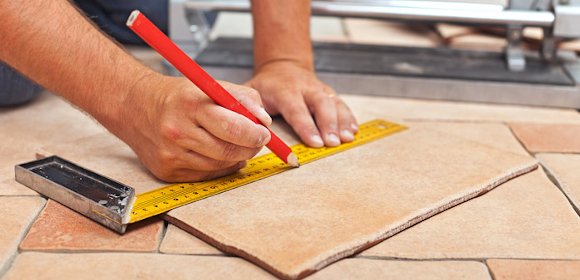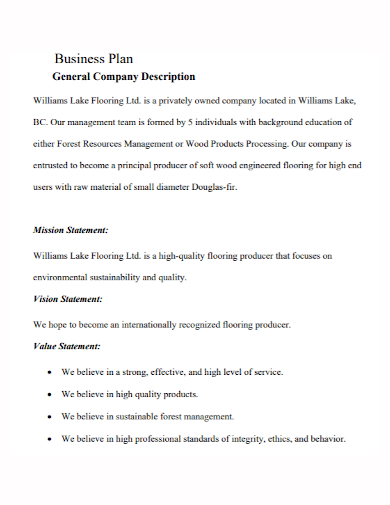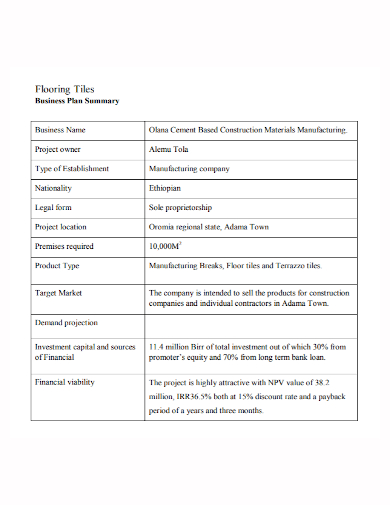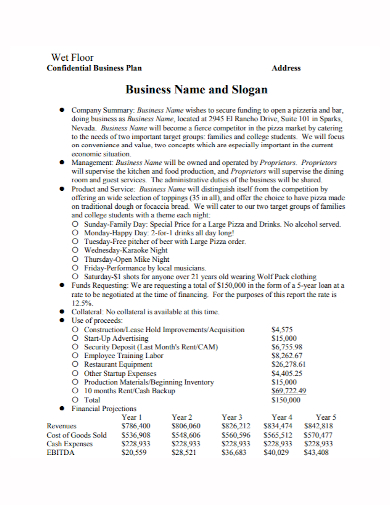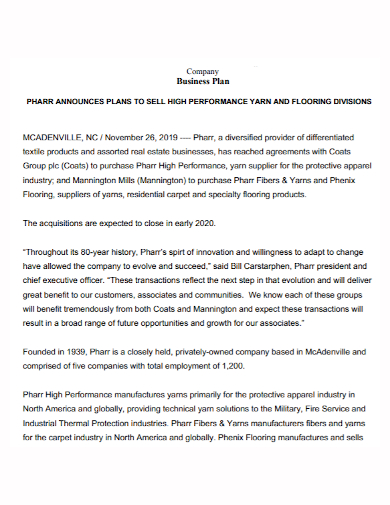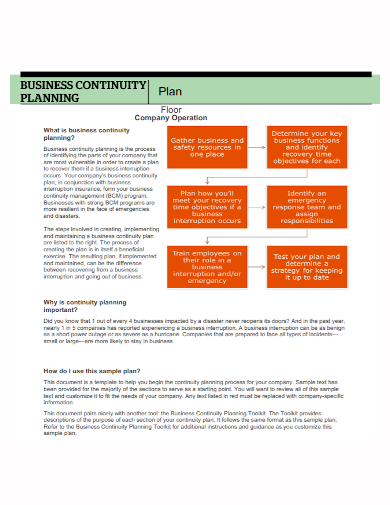Having a good flooring structure is important in any type of establishment, may it be commercial or residential. The floor provides a smooth surface for people and items to move around. If the flooring is damaged or not installed properly, it could cause problems such as people tripping, furniture getting damaged, and making the entire space look terrible. After all, flooring provides not only practical benefits but also an aesthetic aspect as well. If your company offers flooring products and services and you want to reach more customers and establish your brand, a business plan is all you need to keep your business affairs organized. Read the article to know how to make a flooring business plan.
5+ Flooring Company Business Plan Samples
1. Flooring Company Business Plan Template
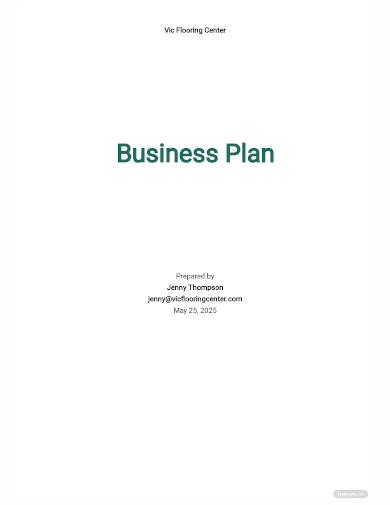
2. Flooring Company Business Plan
3. Flooring Company Business Plan Summary
4. Wet Flooring Company Business Plan
5. Flooring Performance Company Business Plan
6. Flooring Company Business Continuity Plan
What is Flooring?
Flooring is the term used for installing a floor structure or putting a permanent floor covering over a ground structure to create a walking surface. Floor covering is the term used for any material used for flooring. Some examples of floor coverings are carpet, laminate, tile, and vinyl.
How to Make a Flooring Company Business Plan
1. Executive Summary
The first section of your business plan is the executive summary where you introduce your business plan by including an overview of all key sections of your plan such as the architecture and interior design industries, your products and services, your target customers, your team employed in the company, and m your financial and marketing strategies.
2. Company Background
In your company background, elaborate the background of your business such as the origins of your business, highlights of your company, your mission and vision statement, the types of flooring products and services you offer, details of your staff, and your financial and operational plans.
3. Competition, and Customer Analysis
Your competition analysis must identify the indirect and direct competitors of your business by giving a brief background of their business and listing down their strengths and weaknesses. Through this information, analyze your advantage over your competitors. It’s important to know your competition well since this will give you insight on how to keep up with them and stay one step ahead of their game.
The next thing to include in your customer analysis where you describe your target market who will become your main customers. Describe their demographic profiles and explain how you will meet their wants and needs regarding any flooring work.
4. Marketing Plan
The marketing plan should describe the products you will be selling and services you will be providing, the price of each item or service, the location of your stores or company headquarters, and the promotional activities you will be doing to convince your target market to order from your company.
5. Operations Plan
Your operations plan should outline the daily operations of your company. It should elaborate on each process of how you manufacture your products, procure your supplies, manage inventory, do administrative work, etc. Include the names of each of your staff and their responsibilities in your company and make sure to include their names in your outline to make it clear what department they are assigned and see how important their role is for the success of your operations.
6. Financial Plan
The final part to include in your business plan is your financial statement. The first year of your business should have a monthly or quarterly breakdown of the financial statement and for the subsequent years of your business make the financial statement annual.
FAQs
What are the different types of flooring?
There are different types of flooring for different types of purposes:
- Sustainable flooring: This is produced from sustainable materials and made by sustainable processes that help the ecosystem more.
- Seamless polymer flooring: This type of flooring is used to protect commercial and industrial flooring to resist wear and tear, avoid substances from damaging the floor, and for aesthetic appearance purposes.
- Resilient flooring: This type of flooring is made of materials that have elasticity, to make it resilient for force impact that is perfect to use for dance or athletics studios.
- Hard flooring: This type of flooring is made of hard materials such as cement, ceramic tile, glass tiles, and natural stone products.
- Carpeting: This type of flooring is a soft floor made up of carpet fibers to cover a floor indoors.
- Wood flooring: This type of flooring is manufactured from timber designed for flooring, for structural or aesthetic purposes.
What are the different types of business plans?
The different types of business plans are a start-up, internal, strategic, feasibility, operations, and growth.
Once you’re done writing your business plan, review it and revise any errors in it. Errors such as grammar, spelling, and inaccurate information should be removed. Ask a colleague to help you write the business plan. Make sure to let the rest of your employees read the business plan and you may ask for suggestions on how you can improve it. To help you get started on writing your business plan, download our free sample templates above to use as your guide!
Related Posts
FREE 7+ Fashion Business Plan Samples in PDF
FREE 10+ Sprint Planning Samples In MS Word | Google Docs | PDF
FREE 10+ Wedding Planning Samples in MS Word | Apple Pages | Powerpoint | PDF
FREE 9+ Monthly Study Planner Samples in PSD | Illustrator | InDesign | PDF
FREE 9+ Sample Curriculum Planning Templates in PDF | MS Word
FREE 10+ Teacher Development Plan Samples in MS Word | Google Docs | Apple Pages | PDF
FREE 10+ Basketball Practice Plan Samples in PDF
FREE 12+ School Business Plan Samples in PDF | MS Word | Apple Pages | Google Docs
FREE 7+ Client Strategic Plan Samples in PDF | MS Word
FREE 11+ Trucking Business Plan Templates in PDF | MS Word | Google Docs | Pages
FREE 7+ Small Hotel Business Plan Samples PDF | MS Word | Apple Pages | Google Docs
FREE 14+ Bakery Business Plans in MS Word | PDF | Google Docs | Pages
FREE 4+ Yearly Lesson Plan Samples in PDF
FREE 50+ Strategic Planning Samples in Google Docs | Pages | PDF | MS Word
FREE 10+ Construction Project Plan Samples in MS Word | Google Docs | Apple Pages | PDF
